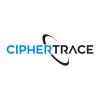 Blockchain analytics firm Chainalysis joins Duolingo, Patreon on Forbes’ next billion-dollar startups list
Blockchain analytics firm Chainalysis joins Duolingo, Patreon on Forbes’ next billion-dollar startups list Blockchain analytics firm Chainalysis joins Duolingo, Patreon on Forbes’ next billion-dollar startups list

Cover art/illustration via CryptoSlate. Image includes combined content which may include AI-generated content.
Crypto compliance and investigation provider Chainalysis has become the only blockchain company to make Forbes’ next billion-dollar startups list of 2019, joining the ranks of tech giants—Patreon and Duolingo. Its efforts to tackle crime in the crypto industry and build tools to enable easy regulatory compliance have made it one of the most promising companies in the industry.
Forbes believes Chainalysis will be the next billion-dollar startup
With crime and uncertainty plaguing every corner of the crypto world, it’s no wonder why one of the industry’s most valuable companies is a startup working on combating these issues. Chainalysis, a blockchain analysis company founded in 2014, recently became the first crypto company to make Forbes‘ “next billion-dollar startup” list of 2019.
Chainalysis has joined the ranks of 24 other tech giants, who Forbes believes have the potential to achieve a billion-dollar valuation (unicorns). The company has joined the ranks of Patreon, one of the most popular crowdfunding platforms in the world, and Duolingo, the globally popular language learning app, alongside a slew of other tech innovators that include Cyberason, Syntego, Truepill, and Front.
The legendary publication seems to believe that the astronomic growth the company has seen in the past two years will help Chainalysis join the handful of unicorns in the crypto business.
The company just launched a new tool that helps traditional banks and money processing services automatically comply with regulations. It enables banks to quickly and securely verify the source of their clients’ funds – an invaluable tool for banks looking to serve more crypto companies.
That very effort helped Chainalysis’s revenue reach an estimated $8 million in 2018, Forbes reported, adding that it also landed the company more than $50 million in venture funding. While it’s certainly not the highest funding round in crypto, it put the company under the spotlight and helped it gain mainstream recognition.
“We’re now helping banks understand how they can build programs to allow cryptocurrency businesses to access banking services but also make sure there’s no illicit activity going on,” Jonathan Levin, the co-founder of Chainalysis, said in the interview.
The most valuable accident in the crypto industry
With over 160 employees in offices in New York, Washington, D.C., London, and Copenhagen, it’s hard to believe that Chainalysis’ status as the leading crypto detective was an accident.
At just 24 years old, Levin co-founded Chainalysis to study how people use Bitcoin. The company’s efforts quickly shifted to identifying criminal behavior linked to the world’s largest cryptocurrency. Levin told Forbes the company started focusing on crypto thefts and Bitcoin usage on the now-defunct Silk Road marketplace.
Chainalysis’ ability to identify blockchain patterns became known to the public when the company managed to locate 650,000 bitcoin stolen from Mt Gox. The attention Levin and Chainalysis got after testifying in front of a U.S. financial services panel meant that the company had found its true calling – cracking down crypto crime.

There has been a steady increase in companies looking to challenge Chainalysis in the past couple of years. London-based Elliptic and California-based CipherTrace both raised more than $10 million each to track illegal activities on different blockchains. Bitfury, Chainalysis’ biggest competitor, also made the inaugural Forbes Blockchain 50 list and is currently valued at more than $1 billion.
However, despite increased competition and an entirely accidental foray into blockchain investigation, Chainalysis still remains one of blockchain’s most promising companies.



 Deribit
Deribit 





















































































